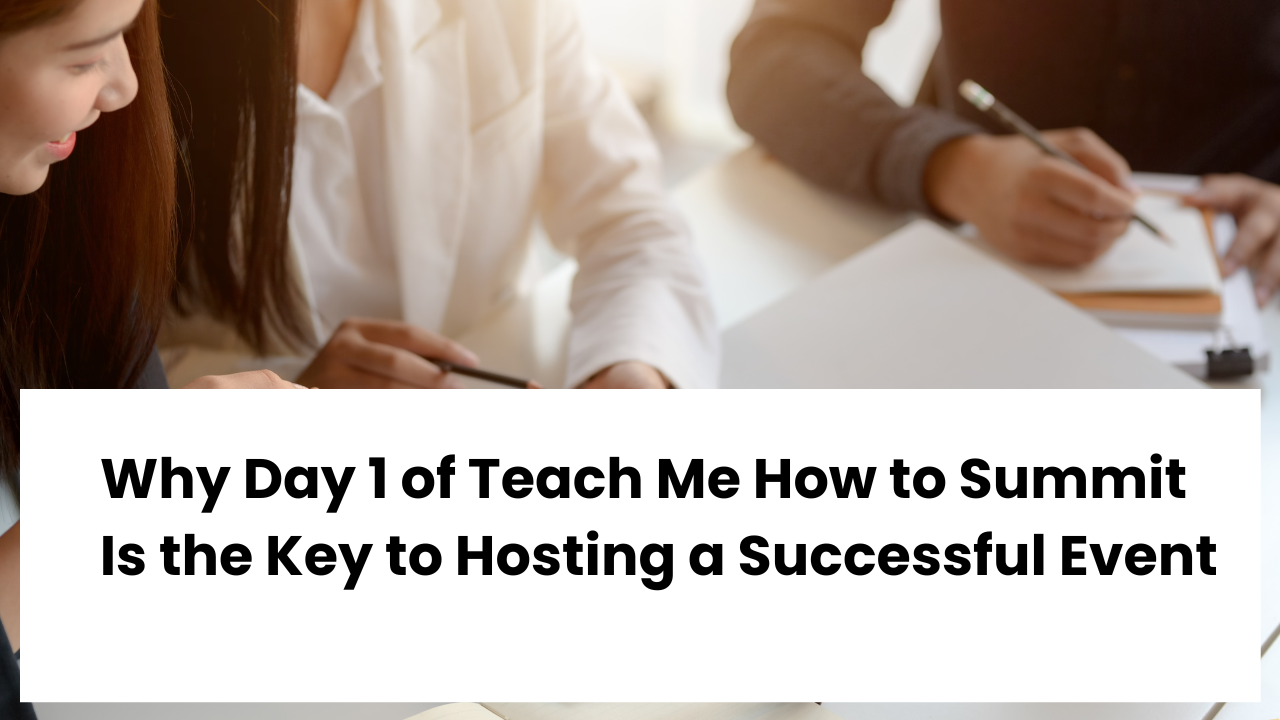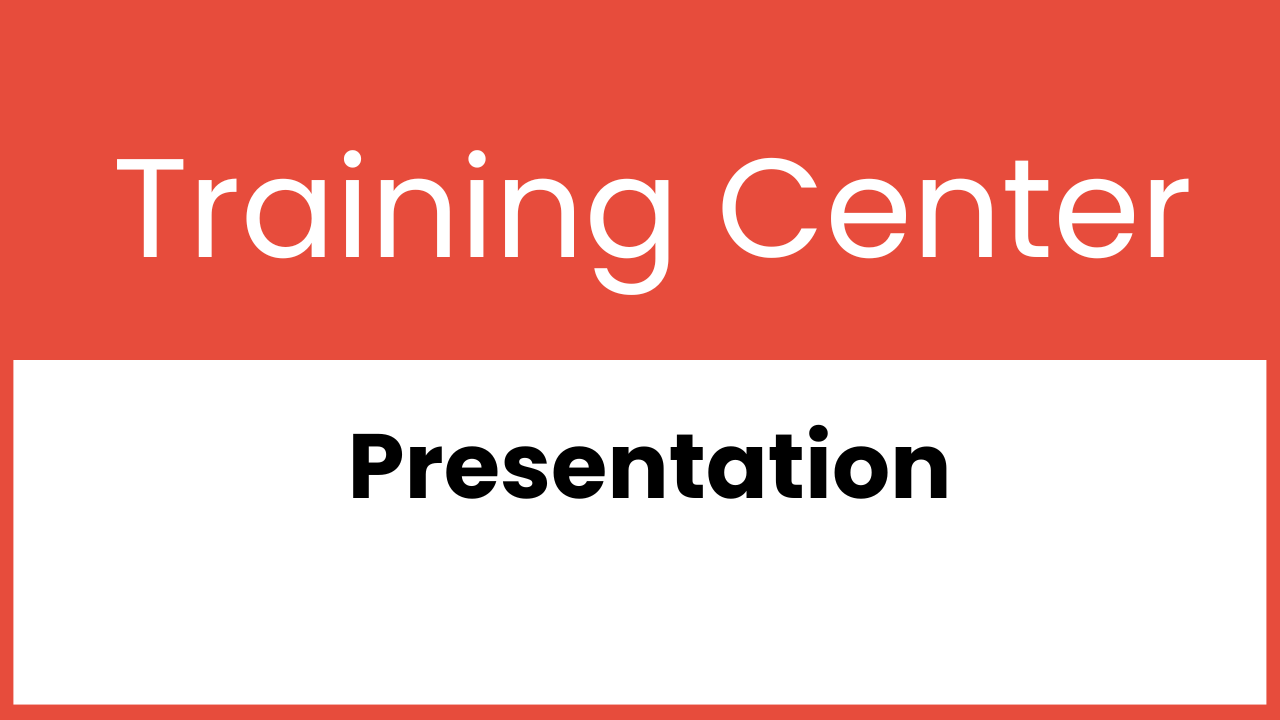11 Reasons Why Communicating With Your Speakers Is Important [Plus] 5 Ways To Communicate Efficiently
featured pitch premium prepare Jun 19, 2023
When it comes to planning and hosting a virtual summit, you can imagine (or maybe you know from previous experience) that working with speakers is a HUGE part of the event. From pitching and onboarding to working with speakers to get the information you need to promote, presentations, as well as any bonuses takes a lot of communicating with your speakers to pull together.
Organizing a virtual event can be an exciting but challenging task, and communicating with the speakers who have agreed to participate will ensure that everyone knows what is expected and when it's expected. Effective commu...
Want Access To Our Premium Blogs?
Sign Up For Summit Club
And not only will you unlock all our Premium "Members-Only" Blogs, but you'll also get monthly support in Live Calls & Expert Trainings, PLUS monthly templates and training to help make planning your event less stressful and more impactful!
Join Now For Just $97
When it comes to planning and hosting a virtual summit, you can imagine (or maybe you know from previous experience) that working with speakers is a HUGE part of the event. From pitching and onboarding to working with speakers to get the information you need to promote, presentations, as well as any bonuses takes a lot of communicating with your speakers to pull together.
Organizing a virtual event can be an exciting but challenging task, and communicating with the speakers who have agreed to participate will ensure that everyone knows what is expected and when it's expected. Effective communication with your speakers is essential for ensuring a successful event, and there are many ways to stay in touch with them throughout the planning process.
In this blog post, I will discuss 11 reasons why communicating with your speakers is important and provide practical tips for using email sequences, video calls, Facebook Groups, Slack, and a speaker information page to keep in touch.
Let's get started!
11 Reasons Why Communicating With Your Speakers Is Important
1. Clarify expectations: Communication with speakers allows you to clarify expectations and ensure everyone is on the same page about the event's goals, format, and timing. Speakers should know the basics of your event format as well as all the ways they can participate and how to get them lined up.
2. Share important information: You can share important event information such as the agenda, virtual platform, and technical requirements with your speakers, helping them to prepare and perform well. Some speakers may be familiar with virtual events, but others will not and will require more attention to make the experience the best it can be.
3. Provide updates: Keep your speakers informed of any changes to the event schedule or requirements, and provide regular updates to ensure they have the most up-to-date information.
4. Encourage engagement: Engage with your speakers and encourage them to participate in pre-event activities, such as social media promotions, to generate excitement and interest. You'll also want to make sure you communicate where information about affiliate links, promo copy, and graphics can be found.
5. Share resources: Speaking of promo copy and graphics, you'll want to provide your speakers with resources such as templates for their presentations, graphics, or videos, and offer guidance on how to use them effectively.
6. Answer questions: Speakers may have questions or concerns about the event, and effective communication allows you to address them promptly and efficiently for the group as a whole, so everyone will have the information.
7. Foster a positive relationship: By maintaining open and transparent communication, you can build a positive relationship with your speakers, which can lead to future collaborations and referrals.
8. Provide support: Providing support to your speakers throughout the planning process can help them to feel confident and well-prepared for the event. You want to help them feel comfortable and good about the event as a whole.
9. Facilitate collaboration: Collaboration between speakers can help to create a cohesive event, and communication is key to fostering these relationships.
10. Manage expectations: By communicating effectively, you can manage speakers' expectations about their involvement in the event, reducing the risk of misunderstandings or disappointment.
11. Evaluate success: After the event, communication with speakers can help you to evaluate the event's success and gather feedback for future improvements.
Now that we've discussed the importance of communication with your speakers, let's explore some practical tips for staying in touch. Here are five ways to communicate with your virtual event speakers:
5 Ways To Communicate Efficiently With Your Virtual Event Speakers
1. Speaker Information Page: A Speaker Information Page (or Speaker Homebase as I call them) can provide detailed information about your event to your speakers in one easy-to-access space. You can include information about their participation, due dates, instructions, and frequently asked questions.
Use it to provide a central location for all speaker-related information, which can help to reduce confusion and keep everyone on the same page.
2. Email sequences: Email sequences are a great way to keep in touch with your speakers throughout the planning process. You can use them to provide updates, share resources, and answer questions to all your speakers at once on pre-determined dates or intervals throughout your pre-launch planning.
I like to onboard each speaker individually with personal emails and then load their information into an email tool such as Flowdesk where they will then start receiving speaker emails that deliver all the updates, reminders, and information they need to have an enjoyable experience.
3. Video calls: Video calls, such as those conducted through Zoom or Skype, are an effective way to have face-to-face conversations with your speakers. They can be useful for talking through the details of your event with potential speakers who need a little more information or a personal connection prior to agreeing to participate.
Also, a great option to share details with your speakers as a whole, however requiring speakers to attend an information session is not something I recommend. If you want to have these info sessions, I'd recommend you record them and post them on a Speaker Information Page.
4. Facebook Group: A Facebook Group can be a convenient way to organize communication with your speakers in one central location. You can use it to share information and updates with all the speakers at once, and they can also ask questions or share their own updates with the group.
I've used Facebook Groups for several of my events, but have moved away from these in my most recent events since they take more effort to pull together, and in my experience, the speakers have little interest in yet another participation expectation.
5. Slack: Messaging apps like Slack can be convenient for quick updates or informal conversations with your speakers. They can also be helpful for group messaging or sharing files. Most often than not, you can reach me quickly on Slack. So if you're like me and have Slack installed on all computers including mobile devices- then providing your speakers with your Slack info or having a workspace just for your event might be a good idea that easily fits into your daily work routine!
Communicating With Your Speakers Is Important
In conclusion, communicating with your virtual event speakers is essential for a successful event.
Effective communication can help to clarify expectations, share important information, provide updates, and encourage engagement. By using email sequences, video calls, Facebook Groups, Slack, and a Speaker Information Page, you can stay in touch with your speakers throughout the planning process and foster a positive relationship with them.
Remember to tailor your communication methods to suit the preferences of your speakers and be proactive in addressing any concerns or questions they may have. By staying organized, transparent, and supportive, you can create a successful virtual event that engages and inspires your audience.
Free Virtual Event
A 3-day digital event for online business owners ready to take control of their business…
by hosting a virtual summit that brings in thousands of warm leads and 5 figures in revenue, highlights your authority, and connects you with people in your industry that are aligned with common goals!
3 Days. 16 Speakers.
100% Online. 100% Free.
Register For FREE
Grab A Free Ticket + Your Virtual Swag Bag
Affiliate Disclosure
💬 Some of the links on this page are affiliate links, which means, at no additional cost to you, we will earn a small commission if you click through and make a purchase.

Sharee Collier, Owner
www.TheSummitHost.com
I love planning events! Virtual Summits make me happy along with collaboration, funnels, chocolate and travel!
Most Recent Posts
Most Recent Premium Blogs














